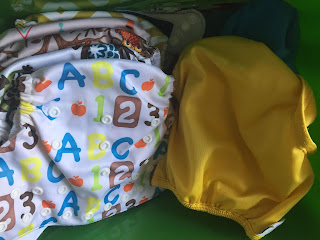
My PED TALK at the 29th
EECERA
EECERA gives the opportunity to people to do a PED talk. What
is that? A PEDagogical talk is not a scientific talk and the purpose is not to
talk about your research. The idea is to talk about something you are
passionate about! It is an 8 min talk, no slides, no notes, then 2 minutes of
questions from the audience. I embraced the challenge and loved it! Had my PED
TALK done with my family waiting outside, all packed and then straight to the
airport. It was a beautiful way to say goodbye to EECERA: high levels of adrenalin!
Below, I am sharing some lines taken from my talk. You can see the full abstract
here: https://www.eecera2019.org/programme/2019
‘I
could bring my child in her pyjamas so supportive they are’
Hello everyone, thank you for being here today.
My name is Melissa. I am a former early childhood teacher and
have worked more than 10 years in the early years sector in Ireland. I am also
a founder member of a voluntary association in Brazil that provides
extra-curricular activities to underprivileged children. I am currently in the
4th year of my PhD journey in the UNESCO Child and Family Research
Centre and I also lecture in the BA and MA in Early Childhood Studies and
Practice at NUI Galway. Most importantly, I am the mother of a very energetic
and full of a life 21-month-old boy.
Why I am saying all of that for? Well, the PED TALK requires me
to say what I am passionate about.
So that is it. I am passionate about young children! They
are fascinating little people, aren’t they? As I used to call my pre-schoolers:
little people with big brains!
We know now much more about child development that we knew 50
years ago. We know that the first few years of a child life are the foundation
stage. They are the ‘golden age’.
Neuroscience tell us that by the age of 5, a child will have
the maximum number of neurons for their entire life. That is why after a day
teaching, or a day at home minding young children, we ask ourselves: where do
they get so much energy from? By the end of the day they are still jumping up
and down and we are exhausted lying down.
They want to explore! They want to touch, to get, to do, to
talk, to sing, to drop, to make noises, to experiment, to read, to dance … They
want nothing less than to conquer the world!
I am passionate about this uniqueness that a young child has
– and I mean any child – regardless of which ability or additional need they
may have. I believe in holistic development as ‘my very good and old friend’
Bronfenbrenner puts it: ‘everything exists, and everything is interconnected’.
So, here is the frustration I am sharing with you. Hopefully,
you can help me spread the message and advocate for change.
Data from my research is saying that children with additional
needs and their families are accessing support from their preschool. They love
preschool and parents love to see their children developing with the support
received from preschool teachers.
During my field work, parents told me that they saw their
children’s additional needs improving ––
since the child joined preschool. While the children’s names are on waiting
lists for the specialised services they need, preschools provide support for
their needs even though they are not expected or have the official capacity to
provide specialised services. Pre-school settings and pre-school teachers are
doing an extraordinary job which has a positive impact on all children,
particularly on those that need the most support.
So why is it that early years educators and practitioners who
are doing this amazing job of supporting children are earning only the
minimum wage?
We need to value early childhood teachers for the greatest
role they have. They are working within the ‘children’s golden age’ and need to
be professionally recognised for that.
It is everyone’s responsibility: teachers, policy makers,
researchers and families, to do something to break this cycle if we want every
child to thrive.
Melissa
Bonotto, 29th EECERA, Tessaloniki/Greece, 23rd August 2019.


Comments
Post a Comment